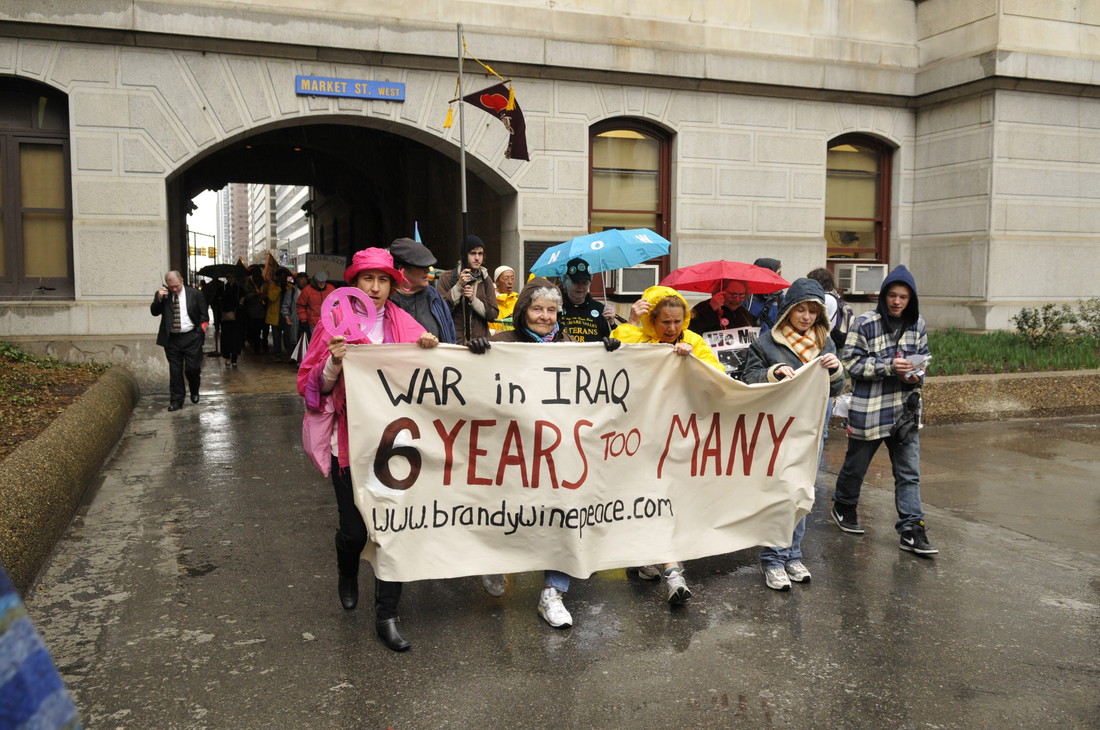
In Philadelphia, community members marching on the sixth anniversary of the Iraq War. Terry Foss/AFSC
We all want to live in safety and peace, but military action rarely achieves this goal. At least 929,000 people—including over 7,000 U.S. service members—were killed in the wars in Iraq, Afghanistan, and other countries swept up in the “war on terror.”
But more than two decades of bloodshed cost $8 trillion and did not bring peace or stability. Instead of spending money on even more weapons, we need to invest in peacebuilding abroad and education, better paying jobs, and affordable, quality health care at home.
AFSC’s research has shown how people across the U.S., from many different backgrounds, support efforts to make such investments in programs that benefit everyone—instead of in weapons and war.
Our 2022 study on U.S. public opinion and Pentagon spending, for example, showed that 56% of adults in the U.S. supported cutting Pentagon spending in the aftermath of the U.S. withdrawal from Afghanistan. Nearly half of U.S. adults (47%) supported cutting the $422 million spent each year on corporate defense contractors—the same corporations that made billions of dollars while everyday people across Iraq suffered during the war. These are taxpayer funds that can and should be spent on programs that benefit everyone.
People across the U.S. also support diplomacy and peacebuilding when offered the choice between nonviolent engagement versus war.
Our 2023 poll on attitudes towards China and North Korea showed that 67% of adults in the U.S. support dialogue with China to reduce tensions--an increase of 5% over the past two years. As well, many people support an array of diplomatic engagements with North Korea--including repatriation of U.S. service members’ remains left behind in North Korea after the Korean War (76%), high-level talks between U.S. and North Korean leaders (68%), and efforts to reunify Korean-Americans with their North Korean family members (66%). Time and again, when we ask people if they support diplomacy and nonviolent engagement, they say yes—but too few polls and policymakers are asking the question in the first place.
As we remember the disastrous invasion of Iraq and the war that came after, we need to come together to make peace and diplomacy the first policy option, not the last. We can demand our leaders support peacebuilding and diplomacy abroad and invest in education, health care, and human needs here at home—instead of investing in weapons and war.
Take action today.
